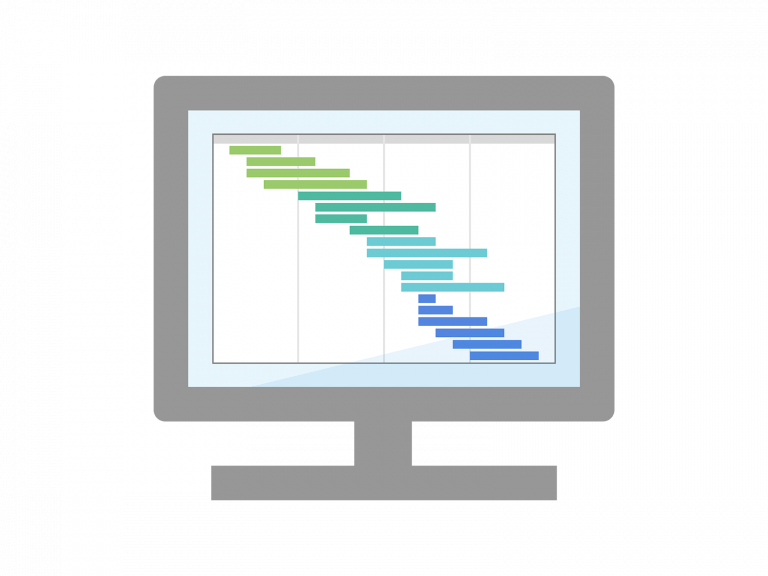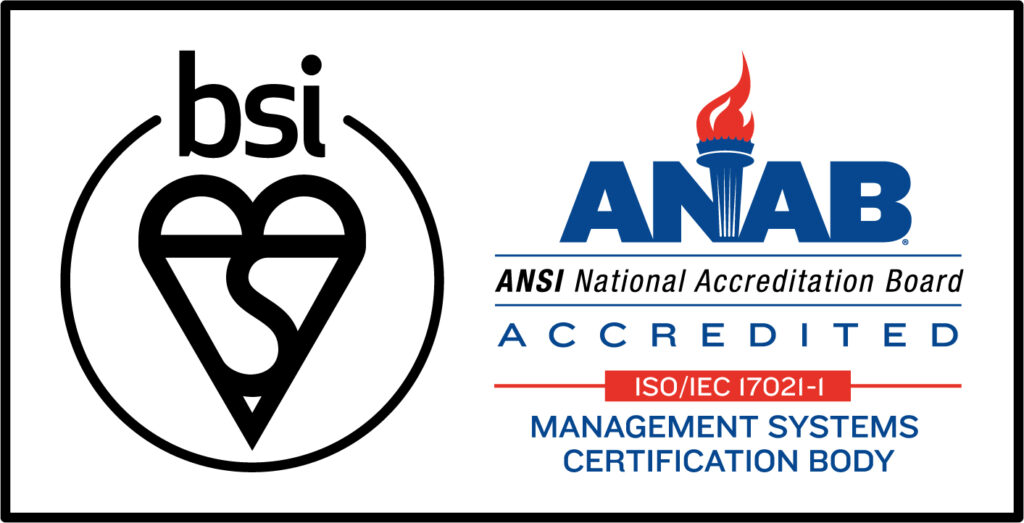In the modern workplace, project managers have a lot on their plate. They often juggle people, projects, clients, and modern-day Agile tools. This can lead to a lot of stress and feeling overwhelmed. However, once they understand their project manager roles and responsibilities, they can better manage their time and be more productive.
A project manager is responsible for leading a project from start to finish.This includes developing the project plan, scheduling resources, and ensuring everyone is on track. Project managers must also communicate with stakeholders to keep them updated on the project’s progress.
With so many hats to wear, it’s no wonder that project managers often feel overwhelmed. However, in this article, we will break down the roles and responsibilities of a project manager so you can ensure that you invest your time and energy in the right areas.
Whether you are an aspiring project manager or have been in the role for years, this article will give you a better understanding of what is expected of you. And, with a clear understanding of your roles and responsibilities, you can be more productive and successful in your career.
Who are Project Managers, and What Do They Do?
A project manager is a professional in the field of Project Management. Project managers have the responsibility of the planning, procurement, and execution of a project, in any domain of engineering.
Project managers are first and foremost responsible for projects. Their job is to see that the project is completed within the given time frame, within the given budget, and with the required resources.
Project managers work closely with other departments in an organization to ensure that all project elements are coordinated. Project managers must also liaise with clients and contractors to ensure that they are satisfied with the project’s progress.
Plus, in case any problem is raised during the execution of the project, it is the project manager’s responsibility to mitigate the issue and get the project back on track.
Every business, big or small, wants its products or services to be successful. Project managers are the ones who make this happen by ensuring that the project is completed on time, within budget, and to the client’s satisfaction.
Project managers are essential because they play a vital role in ensuring that the project is successful. They are responsible for creating the project plan, ensuring that the team has the resources they need, keeping the team on track, and ensuring customer satisfaction.
Only by having a project manager can businesses hope to ensure that the project is completed on time, within budget, and to the client’s satisfaction. That’s why project managers are essential.
All in all, a tough nut to crack, right? But that’s what makes being a project manager so exciting! Project management is not for the faint of heart. It requires a lot of skill, dedication, and hard work.
What Does a Project Manager Do daily?
Project management is a complex discipline, and there is no one-size-fits-all answer to this question. Project managers must be adaptable and adjust their daily tasks to fit the specific needs of their projects.
Because it’s no secret that project managers have a lot on their plate. But what does a project manager do on a day-to-day basis?
Read on to find out the answer to this question and learn about the different roles a project manager plays daily.
Planning:

1. Project roadmap:
Most projects have some requirements; release date, budgets, quality, and so on. Project managers must schedule progress so that the project could meet them.
What they have to do first is to break it down into some phases and set their deadlines.
Then, you make sure you can ensure enough resources for that schedule within budgetary limits. At the same time, project managers must assume tasks necessary for each phase and ensure equipment and talented persons with enough skills.
Then, clarifying the dependencies of tasks is necessary when he prioritizes tasks. There should be a task that cannot be undertaken before other tasks are accomplished. The priority of those tasks that can be a bottleneck should be high.
Then, you can judge whether the schedule is practicable. If the project does not have enough resources, project managers should challenge the requirements.
2. Creating and Managing a Dream Team:
Have you ever worked on a project where the team just couldn’t seem to get anything done? If so, then you know how frustrating it can be.
It will burden you and take up your time. Project managers must be able to create a self-governing team that is able to get the work done without needing constant supervision.
There are a number of things that project managers can do to build such a team.
- You must provide the members with the resources and training in advance.
- You must adjust the priority of tasks so that there are no free members because of task dependencies.
- You must establish clear expectations for the members and hold them accountable for their results. If possible, you had better clarify the concrete deliveries you expect from each member.
- You must tell members what information you need when you enquire about their progress. Information you want is whether their tasks are on schedule, when they are likely to be completed, whether product quality is enough and whether there is any problem.
Communication:

1. Supporting the Project Team:
Project managers must be able to lead and motivate their teams so that they can work together efficiently and achieve the desired results.
For leading and motivating them, project managers must provide their team members with the support they need to complete their tasks. You must ask members about the situation frequently, and if they have complaints and obstacles, you must try to solve them.
Also, when you have any ideas for smoother operations, suggest them.
2. Communicating With Stakeholders:
Project managers must be able to communicate effectively with all project stakeholders. This includes the client, the project team, and other departments within the organization.
A project manager must choose the information the stakeholders need and communicate it. If the team might need to adjust the plan for reasons beyond their control, discuss it.
On the other hand, project managers must also be able to listen to the stakeholders and take their input into consideration. Stakeholders might want to have additional requirements or move the release date forward.In that case, you must tell the situation of your team and try to find a compromise.
3. Maintaining Necessary Reports and Documentation:
Every project produces a lot of documentation and reports. Project managers must be able to effectively manage this documentation and share it with the project team and stakeholders. Those are useful for tracing progress when there are any unknown points. Also, it is important for maintenance after release.
Project managers who cannot effectively manage documentation and reports will likely find themselves struggling to keep the project organized and on track.
Adjustment:

1. Monitoring Project Progress and Taking Corrective Action:
Nothing can sink a project faster than poor project management. Project managers must be able to monitor the project’s progress and identify any issues that may arise. By doing so, they can take corrective action to get the project back on track.
Project managers must use project management tools and techniques to monitor the project’s progress effectively. They must also track the project’s milestones and deliverables. In addition, project managers must create reports that detail the project’s progress and share them with the project team and stakeholders.
Imagine being the captain of a ship. You wouldn’t just set sail and hope for the best. You would track the ship’s progress, monitor the weather, and look for any potential danger. Project managers must do the same with their projects.
If a project is not going as planned, project managers must be willing to take corrective action. This may involve changing the project plan or reassigning tasks to different team members.
Sometimes, it may even mean starting the project from scratch. Project managers must be willing to do whatever it takes to get the project back on track.
Project managers must be able to monitor the project’s progress effectively and take corrective action when necessary.
Here is what a project manager would need to do to effectively monitor the progress of his project:
2. Holding Regular Meetings:
Project managers must hold regular project team meetings. These meetings are important for a number of reasons.
- First, they allow the project manager to stay up-to-date on the project’s progress.
- Second, they allow the project manager to identify any issues that may be affecting the project. There are few projects that proceed steadily with no issues. He must decide how to solve them.
- Third, they allow the project manager to give feedback to the project team.
Project managers who do not hold regular meetings with their project teams will likely find themselves struggling to keep the project on track.
When project managers monitor the project’s progress, they may find that the project is not going as planned. If this happens, the project manager must address it in the following ways.
3. Re-allocate resources:
If the tasks are going well but the other tasks have difficulties, project managers allocate human resources.
Project managers must concentrate resources on delayed tasks. However, remember that there is a task that does not necessarily proceed even if many workers engage in it.
4. Developing a Backup Plan:
If the project has a serious problem and it cannot be solved by adjusting resources, the project manager must design a backup plan that ensures customer satisfaction.
The project manager explains the project situation to your boss and requests more budgets or extends the release date.Otherwise, the team must narrow down the requirements.In that case, the project manager must decide what to throw away and what to keep.
Analysis

1 . Making the Project a Success:
A project manager’s job is not done once the project is completed. Project managers must also evaluate the project to see how it can be improved for future projects.
A project manager has to do everything from writing a Project Post-Mortem report to conducting interviews with the project team. Project managers must be able to take a critical look at the project and identify areas where improvements can be made.
Only by constantly striving to improve will project managers be able to make future projects a success. Project managers who are not willing to learn from their mistakes will likely find themselves repeating the same mistakes on future projects.
Skills Required for a Project Manager:
When it comes to managing a project, there are certain skills that all project managers must possess. These skills include:
Strong communication skills:
In order to manage a project effectively, project managers must be able to communicate clearly and concisely. They need to be able to explain the project goals and objectives to the team, as well as keep the client updated on the project’s progress.
Solid organizational skills:
Project managers must be able to keep the project organized and on track. They need to be able to create detailed plans and schedules and make sure that all team members are aware of their roles and responsibilities.
Ability to take charge:
Project managers must be able to take charge of the project and make decisions when necessary. They need to be able to keep the project on track and make sure that it is completed on time and within budget.
Negotiation skills:
When it comes to managing a project, negotiation skills are a must. Project managers often have to negotiate with vendors, suppliers, and clients. They need to be able to get the best deals for the project and make sure that all parties are happy with the agreement.
Strong problem-solving skills:
One of the most important skills that a project manager must possess is the ability to solve problems. Project managers are often faced with unexpected challenges, and they need to be able to find solutions quickly.
Leadership skills:
Last but not least, project managers must be able to lead the team and motivate them to achieve the project goals. They need to be able to inspire the team and make sure that everyone is working towards the same goal.
These are just some of the skills that are required for a project manager. Project managers must possess a wide range of skills in order to be successful.
Why do Project Managers Need a Project Management Tool?
We are living in a fast-paced world where technology is constantly changing. Every field is being disrupted by technology, and project management is no different.
A project manager job is one of the hardest jobs out there. Project managers are constantly looking for ways to improve their efficiency and productivity. They are always looking for new tools and technologies that can help them get the job done faster and easier.
From planning to execution, there are a number of things that project managers have to do on a daily basis. That’s why they need all the help they can get. And that’s where Project Management Tools come in.
Project management tools help project managers to plan, track, and execute the project. They help project managers to stay organized and on track. Project management tools help project managers to communicate with the team and keep everyone on the same page.
Moreover, nowadays, remote teams are becoming more and more common. Project management tools help project managers effectively manage remote teams. They help project managers to keep track of the work progress, communicate with team members, and collaborate with other team members.
How Can VoicePing Help Project Managers?
When it comes to the best Project Management Tool, VoicePing is the clear winner. VoicePing is a remote collaboration tool that helps project managers effectively manage their projects.
With VoicePing, project managers can easily track the progress of the project. Project managers can also easily communicate with the team and collaborate with other team members. VoicePing’s Project Management features help project managers save time and increase their productivity.
VoicePing comes with a number of features that are specifically designed to help project managers. Here are some of the features that make VoicePing the best Project Management Tool:
Project Tracking:
VoicePing’s Project Tracking feature helps project managers to track the progress of the project. Project managers can see which tasks are completed and which ones are still pending. Project managers can also see the progress of each team member.
Project Timeline:
VoicePing’s Project Timeline feature helps project managers to see the project timeline. Project managers can see the start date and end date of the project. Project managers can also see the duration of each task.
Project Report:
VoicePing’s Project Report feature helps project managers to generate a report of the project. Project managers can see the progress of the project, the number of tasks completed, and the number of tasks still pending. Project managers can also see the project timeline and the duration of each task.
VoicePing has all the bells and whistles that a Project Manager needs. From Project Tracking to Project Timeline, VoicePing has everything that a Project Manager needs to effectively manage their projects. So, if you are looking for the best Project Management Tool, VoicePing is a clear choice.
Final Thoughts
No matter what business you’re in, project managers are essential. They play a vital role in ensuring that the project is completed on time, within budget, and to the client’s satisfaction.
Planning, execution, and customer satisfaction are just some of the things that project managers have to do on a daily basis. Making sure that the project is a success is a big responsibility.
But with the help of VoicePing, project managers can easily stay connected with their team and get the job done. VoicePing has every feature that a project manager needs to be successful.
So, if you are a project manager tired of using a bunch of different tools to stay connected with your team, then VoicePing is the perfect tool for you. Try it today and see how it can help you get the job done.





